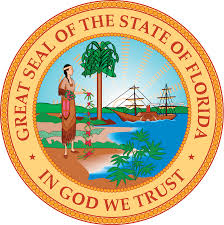18 April 2016
Here’s the report
With little fanfare and no opposition, the Legislature passed and Gov. Rick Scott signed a comprehensive rewrite of the state’s controlled substances act that officials say should help them get a handle on a growing problem.
The new law defines illegal drugs by their molecular structures, making it easier to prove that a substance is “substantially similar” to an illegal drug already listed as illegal. And small deviations in those structures are not enough to make substances legal. Under the current law, prosecutors have to prove that slightly changed substances have the same physiological effect as the predecessor illegal drug.
“The manufacturers of these synthetic drugs are constantly altering components of these compounds to avoid arrest and prosecution,” said State Sen. Wilton Simpson, R-Trilby, during a committee hearing about his bill, which he said “would allow our law enforcement to keep pace with rogue chemists who are putting our children in danger.”
“We’re going to be finally able to get some decent teeth into these prosecutions for dangerous substances that we didn’t have before,” said Hillsborough County’s top drug prosecutor, Darrell Dirks, “and getting off this continuous merry-go-round of continuous legislative amendments to the controlled substances statute, simply because of the way we defined controlled substances. It was great back 30 or 40 years ago when we knew what the controlled substances were that were being used and abused for the most part. Those days are long since gone.”
The change in the law comes at a troublesome time for medical professionals, who are seeing a surge in overdoses from synthetic substances, said Alfred Aleguas, director of the Florida Poison Information Center for the Tampa region at Tampa General Hospital.
“I think there’s a lot of people using these thinking they’re fairly benign, and you just don’t know what you’re getting,” Aleguas said. “There’s no control over what sort of dose anybody’s getting.”
In the first three months of the year, 56 cases involving overdoses from synthetic cannabinoids were reported from Florida to poison control centers, Aleguas said. Most of those calls were made by hospitals, and Aleguas said that figure likely understates the problem because medical personnel may treat patients without calling. Last year, there were 269 calls from Florida and 7,794, nationwide, a surge from the previous year’s numbers of 176 and 3,682.
Though use of some synthetic substances had waned, Aleguas said it now “seems like they’ve come back with a vengeance.”
The new generation of spice — synthetic marijuana — is much more potent and deadly than the previous generation, he said.
Under the current law, Attorney General Pam Bondi frequently signs emergency orders adding new chemical substances to the list of illegal drugs until the Legislature can act.
Bondi says the new law should reduce the need for emergency orders after every tweak in the molecular structure of an existing synthetic drug.
“I was having to sign emergency orders, I felt like, left and right,” Bondi said, “and the drug dealers were staying ahead of us.”
“What they would do is keep changing the compounds,” Bondi said. “Law enforcement would go into a warehouse, kick the doors in and find all these drugs, and creative chemists would change the compounds just a little bit and we hadn’t outlawed them yet. It was a constant chase.”
Bondi said she will sign emergency orders when necessary, but “I don’t want to have to sign one after somebody dies, after a drug dealer makes a fortune.”
Although the legislation was voluminous — more than 200 pages — it apparently wasn’t controversial, drawing no opposition in the Legislature. “This legislation was extremely complicated,” Bondi said. “We worked with a team of lawyers as well as a team of chemists.”
The law adds items to the list of illegal drug paraphernalia, Bondi said. Certain chemicals will be subject to forfeiture if it can be shown they are connected to the manufacture of illegal drugs.
Bondi said more work remains to be done, and she hopes it can be addressed next year.
She wants the Legislature to change the drug trafficking statute — and it’s tough mandatory minimum prison sentences — to include more synthetic drugs. The trafficking statute includes some, but not most, synthetic substances as well as traditional street drugs, allowing for tough sentences for crimes involving large quantities of the drugs listed.
The new law had a companion in the Legislature that addressed the trafficking issue, but it didn’t make it through the session. Bondi said she hopes that proposal will pass next year.
The names of the substances can be mind-numbing, making it hard to find logic in the fact that, for example, the trafficking statute includes something called 4-methoxyamphetamine, but not 3,4-methylenedioxy-alpha-pyrrolidinobutyrophenone.
“This is how complicated this stuff is, and this is how sophisticated these drug dealers are,” Bondi said.
– See more at: http://www.tbo.com/news/crime/florida-tightening-laws-to-keep-up-with-synthetic-drug-manufacturers-20160416/#sthash.45wIFJn5.dpuf
Attorney General of Florida Information Page About Synthetic Drugs
Florida Senate Bill History Page
HB 1347

















